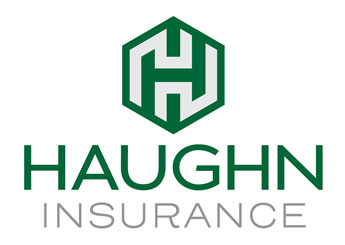
“Property” is any item with value. Any item of property can be classified as either real property or personal property. In the insurance world, property policies cover two basic categories of property: building property and personal property.
Building coverage normally includes machines and equipment that are permanently installed, such as air conditioning equipment. Personal property consists of property you own such as office furniture, machines and equipment (if not attached to the building), raw materials, goods-in-process, and finished goods.
It’s important for business owners to understand the difference between these two types of coverage because, in the event of an earthquake or another disaster, you will want to ensure that everything on your business’s premises will be covered by your property insurance. Speak to a business property insurance agent to learn where your unique risks are present.
Types of Personal Property
All property that is not land property is personal property. Examples of personal property include vehicles, merchandise, furniture, tools, clothing, and oil. For insurance purposes, personal property falls into these classifications:
- “Contents” – referring to the contents of a building (equipment and inventory);
- “In transit” – as businesses commonly ship property to others (merchandise) or receive property from others (raw materials or supplies);
- “Possession of others” since organizations place its property in the temporary possession of others for processing, cleaning, repairing, adjusting, storing, exhibiting, or selling;
- “Floating” property that does not remain at a fixed work site or that is in transit between work sites (for example, a wedding photographer’s cameras or a building contractor’s tools and mobile equipment).
What Property Types are Typically Excluded?
The following types of property are commonly excluded under property policies:
- Money and securities, accounts, bills, and food stamps
- Animals other than stock
- Vehicles, aircraft, or watercraft (with some exceptions)
- Land, piers, wharves, docks
- Crops, grain, or hay located outside
- The cost of excavations, grading or backfilling
Discuss your policy with your business property insurance agent and make sure you are very clear on the provisions. Many (but not all) property policies also exclude building foundations, paved surfaces (like walkways and roads), electronic data, and the cost to restore information on valuable records (both electronic and hard copy versions).
Top Coverages for Business Property Insurance
A business property insurance agent can go over particular places on your property to consider insuring, that might include:
- The building that houses your business, including if it is owned or rented
- All office equipment, including computers, phone systems, and furniture, whether they’re owned or leased
- Accounting records and essential company documents
- Manufacturing or processing equipment
- Inventory kept in stock
- Fence and landscaping
- Signs and satellite dishes.
About Haughn & Associate
Founded by Michael Haughn in 1986, Haughn & Associates is a full-service, family-owned, independent insurance agency based out of Dublin, Ohio. H&A strives to provide the best possible price and unique insurance solutions across a myriad of industries, including construction, IT, Habitation & Commercial Property, Agriculture, and Engineering. Devoted to providing the best of business insurance, life and disability insurance, personal insurance, employee benefits, and bonds, H&A is proof that success lies in long-standing client relations and satisfaction. To learn more about how H&A can be of service to you, contact us at (877) 802-2278.

